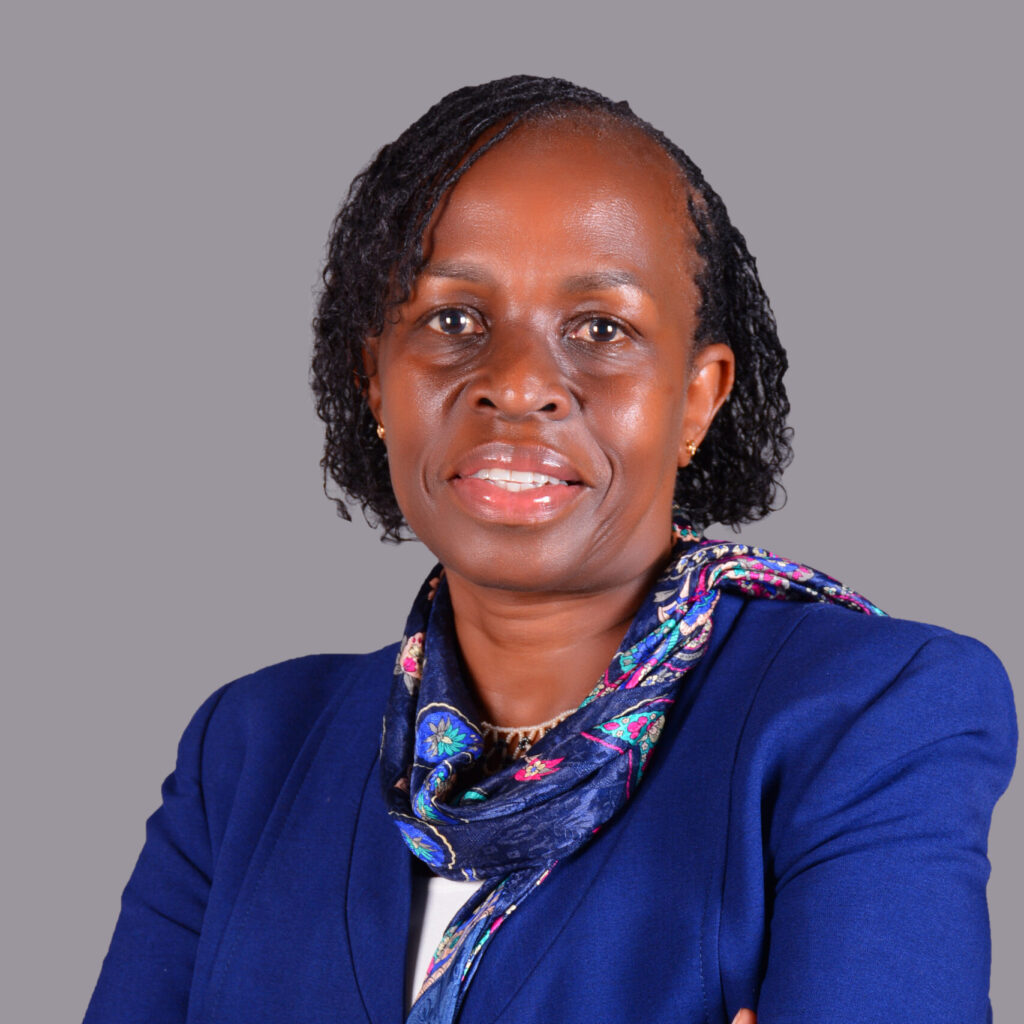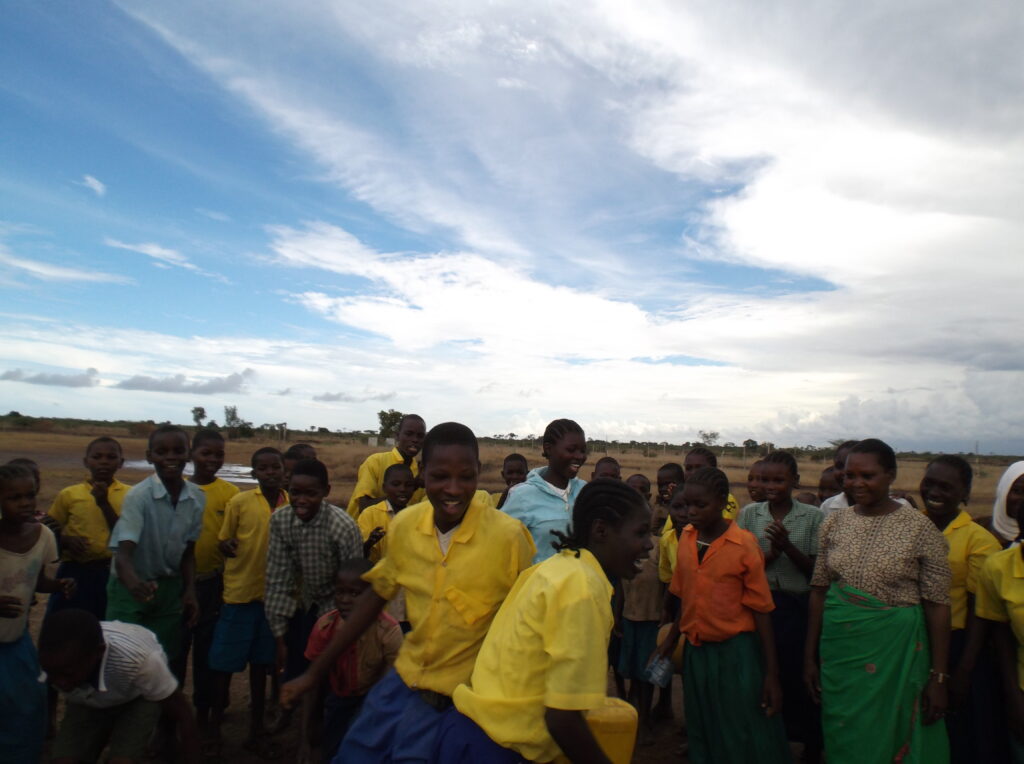
Tana River County in southeastern Kenya is an emblem of diversity and resilience. Endowed with natural resources, it has endless potential, but the harsh weather conditions test the strength of its people daily. The land swings between extremes—erratic rainfall with upstream floods one season, and relentless drought and water scarcity the next. These conditions often spark tensions among communities. Yet, amid these challenges, there is a remarkable effort to bring transformation through the power of education.
Over the years, violence has brought chaos to Tana River County affecting communities, families, and even schools. In August 2012, the region witnessed one of the worst violent conflicts in its history; as a result, 200 people, mostly women and children, were killed due to clashes between the two main ethnic groups, the Pokomo and the Orma.
The Pokomo are settled farming people while the Orma are mainly cattle-herding pastoralists. Both groups have a long history of tension over access to land and water in this ecologically rich area.
Against this challenging backdrop, a truly heartwarming moment unfolded in September 2015. The very children and teachers who, just a few years earlier, struggled to even speak to one another were now coming together—learning, dancing, and sharing stories in harmony. In a powerful celebration of unity, more than 200 children from the Pokomo, the Orma, and several other ethnic groups gathered to commemorate the International Day of Peace, proving that education and understanding can bridge even the deepest divides.
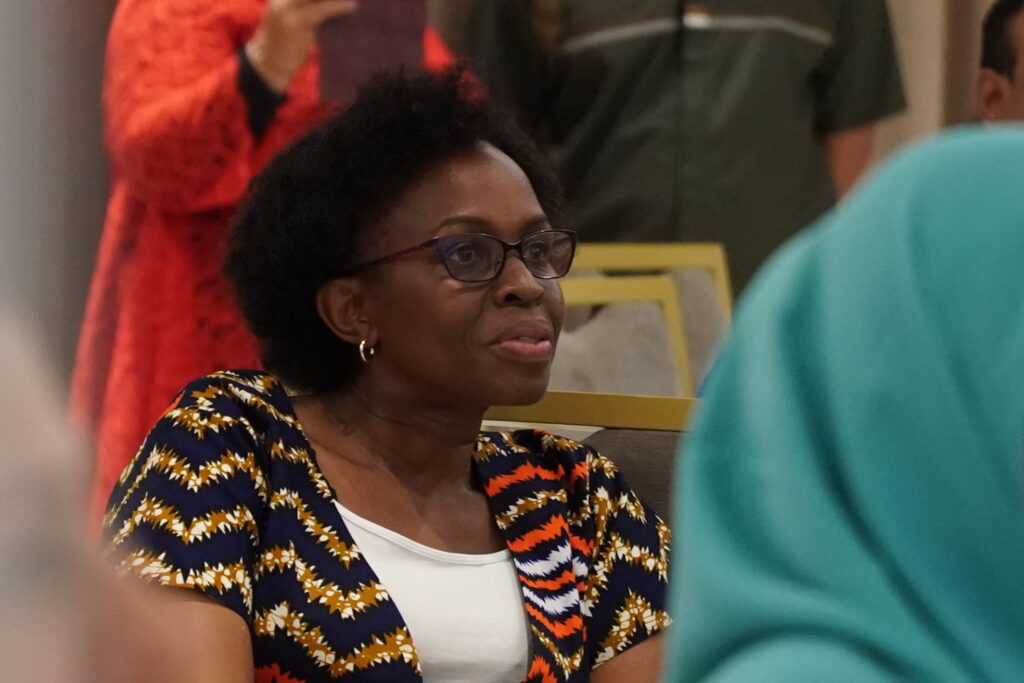
This celebration did not happen by chance—it was the result of several collective efforts, dialogue, and collaboration. It all began when Mary Kangethe first encountered Arigatou International and its transformative Learning to Live Together (LTLT) program. At the time, Mary was serving as Assistant Director of Education at Kenya’s Ministry of Education, and she immediately recognized the program’s potential to make a lasting impact. Determined to bring it to Kenya, she joined a Training Workshop in 2014, where she became a certified Facilitator.
The Learning to Live Together program was then introduced to the Ministry of Education of Kenya. Soon enough, the Ministry partnered with Arigatou International and the UNESCO Regional Office for Eastern Africa to develop a program to address the need for mutual coexistence in the community through education. Together, they worked to adapt the principles of the Learning to Live Together program to the Kenyan context, integrating ethics and values-based education into the national curriculum.
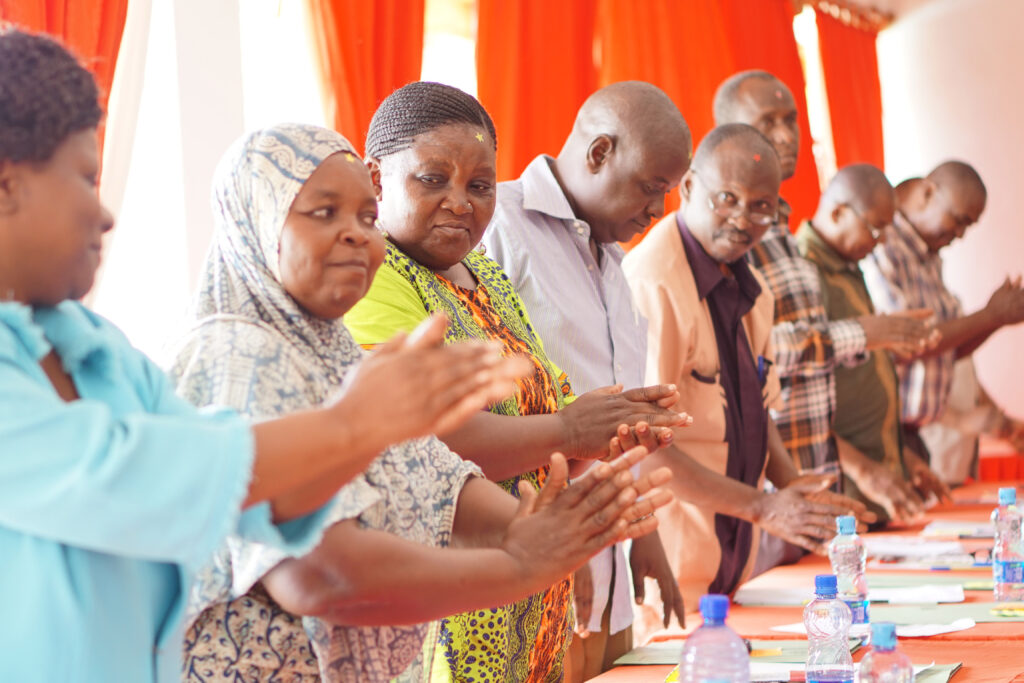
“We were already implementing programs in Tana River (…) we had done a psychosocial intervention there,” remembers Mary. She candidly admits that when they got to know about Learning to Live Together, “we thought ‘Okay, this is just another program.’” However, in-depth exploration of the manual allowed them to identify “several gaps in our peace education programs, in terms of how we promoted values and concretely engaged teachers, and therefore we were open to pilot an intervention.”
But for the intervention to succeed, they had to start from the ground up—building capacity within the Ministry of Education to ensure teachers in Tana River County received the training, support, and follow-up needed to effectively implement the Learning to Live Together program in their schools.
In September 2014, 15 Ministry officers participated in an intensive four-day workshop, equipping them with the knowledge and skills to take on this challenge. With this foundation in place, they went on to train 25 teachers, guiding them in how to use the Learning to Live Together manual, its framework and approach, and develop essential facilitation skills. The teachers were strategically selected from the areas most affected by violence. Two teachers from each of these schools—one male and one female—were trained to lead the way.
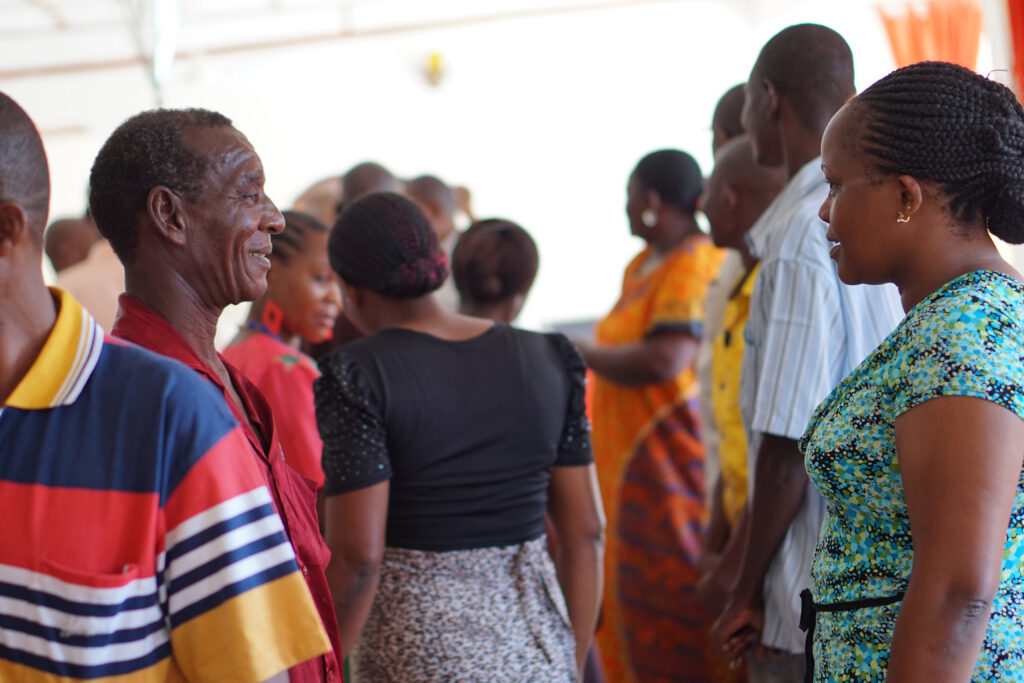
The workshop saw a slow and cautious process of allowing teachers to open up and build bridges of trust. Julius Waweru Ng’ang’a, from the Ministry of Education, who at the time was District Quality Standards Officer of Tana Delta, recalls: “As the training progressed, the teachers started mingling and communicating.” Before long, the change in their attitude was noticeable, “even in the way of dressing, in the level of confidence, and the capacity to express themselves,” says Mary.
In the end, the teachers were trained as facilitators throughout three basic training workshops. “We felt excited to see them progressing, but also aware that they still required a lot of support,” says Mary.
To this point, they seemed to have everything: the manual, the confidence, the training, and yet something was still missing. “We realized that it was a big challenge for the teachers to come up with a lesson plan from the manual and deliver it”, admits Mary. That is when the Kenyan officers took a step forward: “We agreed that we were going to develop a teachers’ activity book that would customize the LTLT manual to the Kenyan context.”
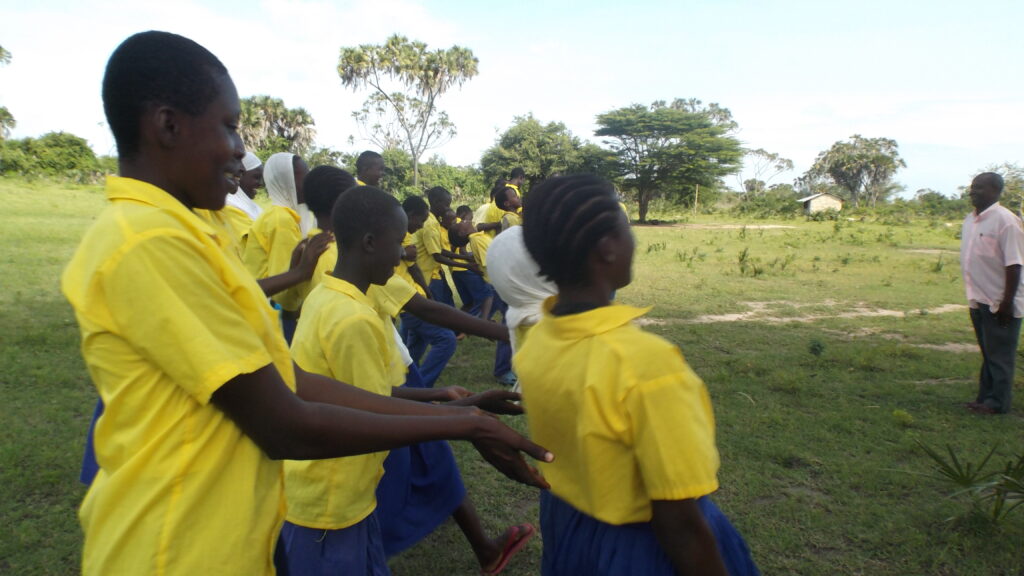
With a solid pedagogical foundation in place, teachers implemented customized Learning to Live Together programs in their schools from February to July 2015. Their efforts extended beyond the classroom, as from June to August 2015, they facilitated child-led initiatives aimed at transforming mindsets within schools and the broader community. “Teachers planned and organized activities that encouraged children, teachers, and school communities to think differently,” explains Julius. “Many even took children into the villages to engage directly with community members, raising awareness and inspiring change.”
The impact of these initiatives was profound. “Children became deeply connected,” recalls Mary. “We saw their confidence, creativity, and enthusiasm grow. I remember one school that developed an intervention to prevent child marriage, and they even managed to rescue a girl who had already been married.”
By September 2015, the International Day of Peace event marked the successful completion of the pilot program in Tana River County, having reached 657 children. The program left a lasting impact, fostering positive outcomes such as improved conflict resolution skills, greater confidence in sharing and participating in lessons, and a renewed motivation to attend school.
However, the pilot program not only resonated in the communities and the county, but it also expanded at the national level through policy-making processes. “We escalated it to the curriculum reform, so those principles can be mainstreamed and implemented in schools (across the country)”, says Mary, pointing out that this is probably the most important outcome of the whole experience.
The journey that began in Tana River County grew into a nationwide movement, shaping the future of ethics education in Kenya. Arigatou International supported the curriculum review process, particularly the development of the values-based education curriculum, a consultative process that allowed the country to reflect and formulate how the education system can foster ethical values that promote peace and social cohesion.
The experience with the Learning to Live Together program, the training of teachers, the training of education personnel from the Ministry as well of Curriculum Developers was pivotal for this effort. “The nurturing of values will facilitate the achievement of the curriculum reforms’ vision, particularly with respect to molding ethical citizens. Curriculum is used as a channel through which ethics education can be enhanced for sustainable peace in the world” said Jane Nyaga, former Assistant Director of the Kenya Institute for Curriculum Development.
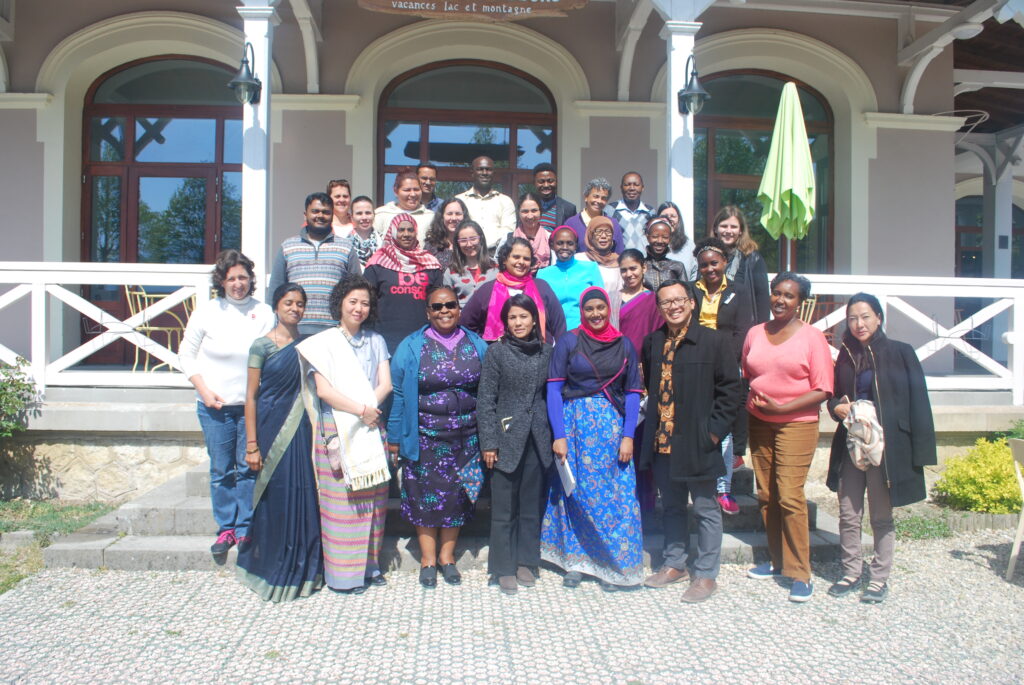
In 2017, Mary’s passion and commitment to advancing ethics education earned her a place in the International Training of Trainers in France—an experience that solidified her role as a Learning to Live Together Trainer. That same year, she started working as Director of Education Programs at the Kenya National Commission for UNESCO (KNATCOM).
Following the success in Tana River, in 2023, the Ministry of Education of Kenya embarked on a new and ambitious initiative—the Ethics Education Fellowship. This groundbreaking program has successfully expanded across Bangladesh, Indonesia, Kenya, Mauritius, Nepal, and Seychelles, strengthening ethics education in formal school settings and fostering global citizenship.
The Fellowship is made possible through a partnership between the Ministries of Education of each country with Arigatou International, the Guerrand-Hermes Foundation for Peace, KAICIID International Dialogue Centre, the Muslim Council of Elders, the Higher Committee of Human Fraternity, the UNESCO New Delhi Cluster Office, and the UNESCO Regional Office for Eastern Africa, in collaboration with the National Commissions for UNESCO of the participating countries.
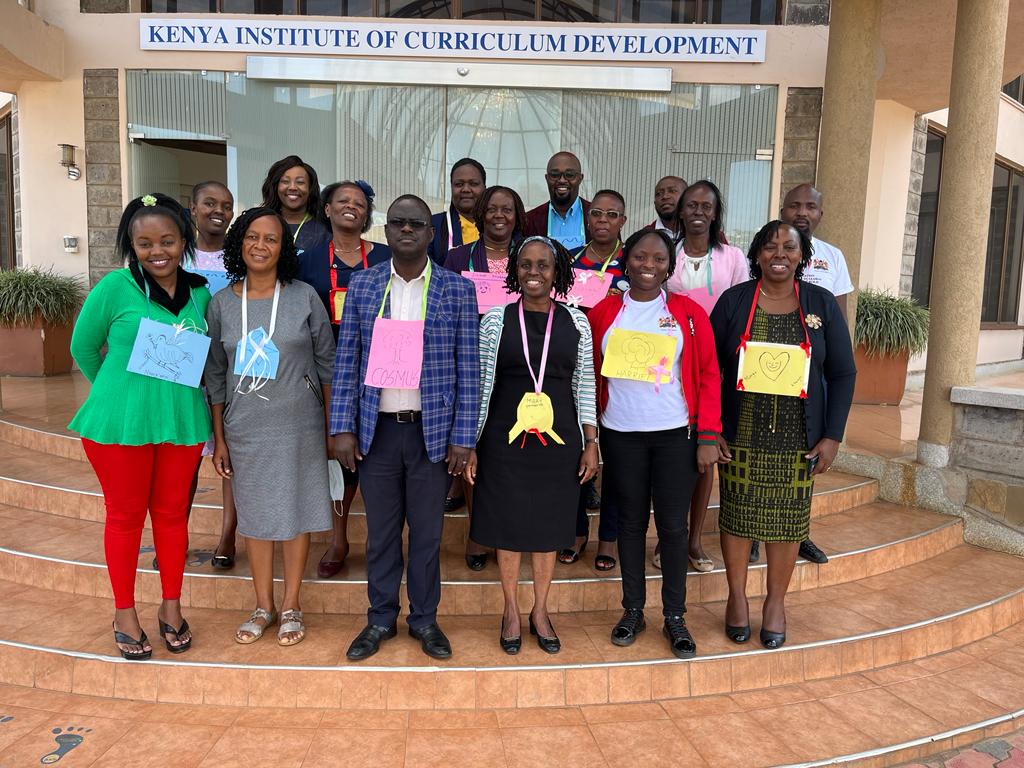
In Kenya, the pilot was a collaboration between the Ministry of Education and the quality assurance office, Kenya Institute of Curriculum Development (KICD), Kenyatta University and Thogoto Teacher Training College. The program also engaged high-level stakeholders, including Africa Nazarene University and KNATCOM, with Mary at the forefront of the education programs.
The five fellows from Kenya trained 32 schoolteachers and eight teacher trainers, who in turn empowered students with essential skills for peacebuilding and conflict resolution. The program ran from March to August 2023, reaching 1,620 learners.
The impact has been transformative: 72% of learners reported they could form friendships with people from different backgrounds, and 77% felt more confident in listening and understanding others’ perspectives. “At the beginning, I didn’t know how to interact with others because of my skin color, but the program helped me,” reflected a student.
Students launched child-led initiatives like Peace Gardens and Talking Walls to address issues such as bullying and climate change, demonstrating their commitment to creating a more inclusive and compassionate world.
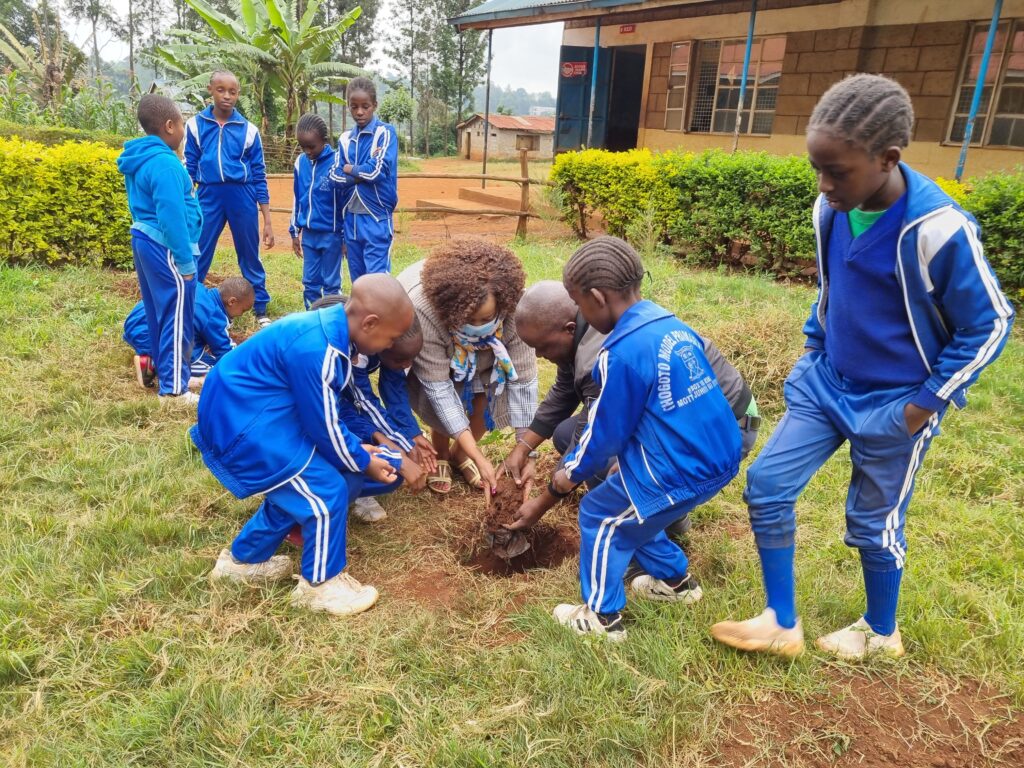
“Through participatory and collaborative learning, students who were once hesitant to ask questions now feel comfortable seeking assistance from their peers. I’ve also learned the importance of creating a safe learning environment, resulting in my students eagerly anticipating my lessons,” shared one teacher.
As Kenya moves into Phase Two of the Fellowship program in 2025, the goal is to strengthen and expand its reach, ensuring that more children and educators benefit from the transformative power of ethics education and that more teachers get trained through in-service and pre-service training programs.
“Our fellows will continue working together as a cohesive team. We have discovered valuable synergies, having come from diverse areas within the education sector. These synergies are proving to be highly effective in driving the successful implementation of ethics education across the country,” remarked Mary, reflecting on the second phase of the program.
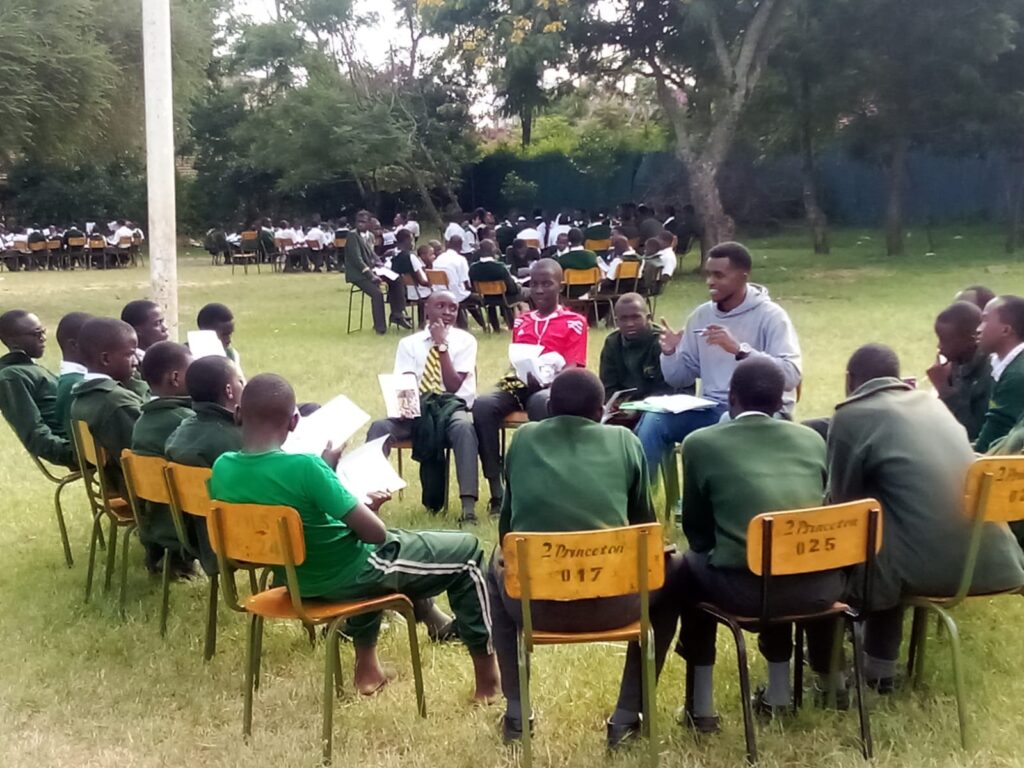
What began as a small pilot has evolved into a national effort—one that is shaping a generation of compassionate, empathetic, and responsible citizens. Mary has been instrumental in this transformative journey. The future of ethics education in Kenya is bright, and this is just the beginning.
Education provides a major opportunity to facilitate the development of competencies for the prevention of violence and for promoting peaceful coexistence. This includes critical thinking, negotiation, problem-solving, and decision-making skills.
